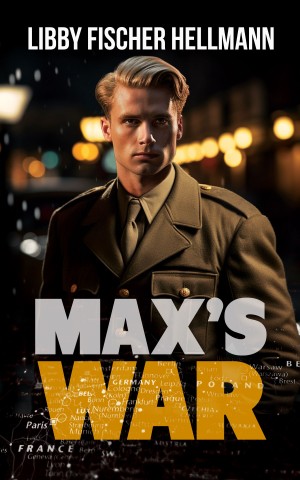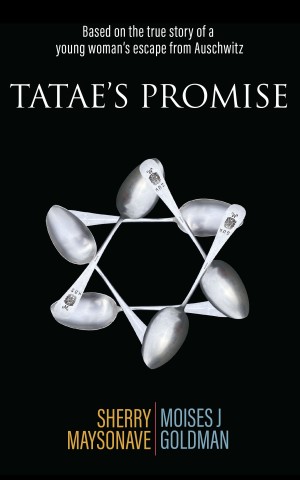One morning in late August 1944, as World War II draws to a close, Coco Chanel is arrested in her suite at the Ritz Hotel in Paris on charges of treason to France, stemming from her romance with a Nazi spy.
Her two-hour interrogation at the Prefecture of Police offers a gripping battle of wits between the famously acerbic designer and a hostile soldier of the Resistance, who attacks her as a German collaborator. Flashback scenes of Chanel’s life during the Paris Occupation explore her motivations and her betrayal of her Jewish partners and a close Jewish friend.
Though Chanel epitomizes the treachery of France during World War II, at heart this is a novel about the choices one woman made when the stakes were the highest and the perilous, even deadly, consequences
to those around her. In today’s world, a time when antisemitism and hatred in general have exploded anew, it’s a cautionary tale about the necessity of standing against evil when it stares you – seductively – in the face.

Fiction
Coco At The Ritz
September 1, 2021
Discussion Questions
Courtesy of Gioia Diliberto
- Having started with nothing, Chanel managed to build a prestigious fashion empire with the help of some influential, wealthy friends. Do you think, above all, opportunism led her to become involved with Spatz von Dincklage? What do you think were her other motives?
- Do you think Chanel’s motive in returning to Paris at the end of the summer of 1940 was primarily to work on having her nephew released from a German prisoner of war camp? After her nephew was released, why do you think she remained at the Ritz, instead of waiting out the Nazi Occupation at her country house in the unoccupied zone?
- In your opinion, what was Chanel’s attitude toward the Germans? She was on the record making anti-Semitic remarks, but do you think she actually supported Nazi ideology?
- How is your view of Chanel’s character complicated by her friendships? She was close to a variety of people of varying moral rectitude and backgrounds. The poet Pierre Reverdy was a member of the Resistance; the arts patron Misia Sert was vocally anti-German; the poet Max Jacob was Jewish and the recipient of her financial help; Serge Lifar, the ballet master of the Paris Opera, was a blatant collaborator; and Jean Cocteau, the artist and director, consorted with Germans but came to Jacob’s aid in the end.
- On page 205 (all page numbers refer to the hardcover edition), Coco hides the petition Jean Cocteau circulated for Max Jacob under a seat cushion, telling herself she’ll sign it later when Spatz isn’t listening from the next room. This is cowardly behavior from someone who always prided herself on her boldness and independence. What do you think her real motive was in not signing the petition immediately?
- After the Liberation of Paris and the very real threat of her arrest, why do you think Chanel decides to stay in Paris instead of fleeing with Spatz, as he urges her to do?
- The Interrogator has a catalog of charges he levels at Chanel, from sleeping with the enemy to denouncing her Jewish partners to the Gestapo in an effort to get full control of her perfume company. Which to you is the most damning and why?
- On page 124, Chanel gets rid of Pierre Reverdy’s transmitters, which he’d stashed in her country house basement, hoping to use them to communicate with his colleagues in the Resistance. How did you feel about Coco’s actions here? Did you think she was acting out of a desire to protect herself and her household, or did you see this as more evidence of her collaboration?
- On page 250, Chanel grabs the scissors from the Interrogator and begins hacking her hair off. In your opinion why does she do this? Do you think the presence of scissors in the novel has a symbolic meaning, and if so, what do they represent?
- At the end of the novel Chanel flees to Switzerland. In real life, she lived there in exile for almost ten years. As she is portrayed in the novel, do you think Chanel feels guilt and remorse, or is she simply relieved to have escaped prison?
- In your view, is wearing Chanel clothes, carrying a Chanel handbag or using Chanel lipstick and perfume problematic given how Chanel behaved during World War II? Should Chanel be canceled? That is, do you think consumers should boycott the brand because of the founder’s tarnished legacy?

Jewish literature inspires, enriches, and educates the community.
Help support the Jewish Book Council.



